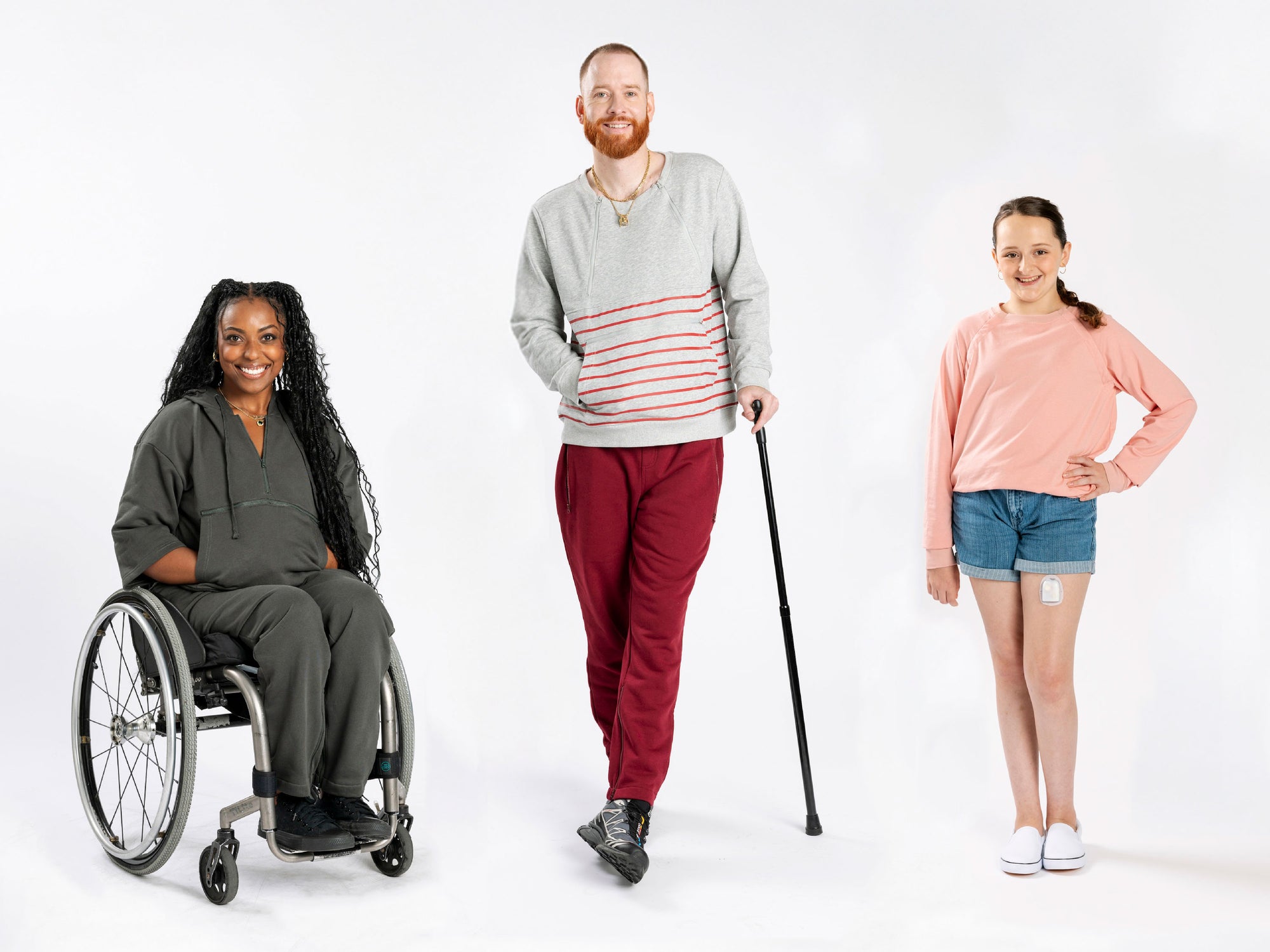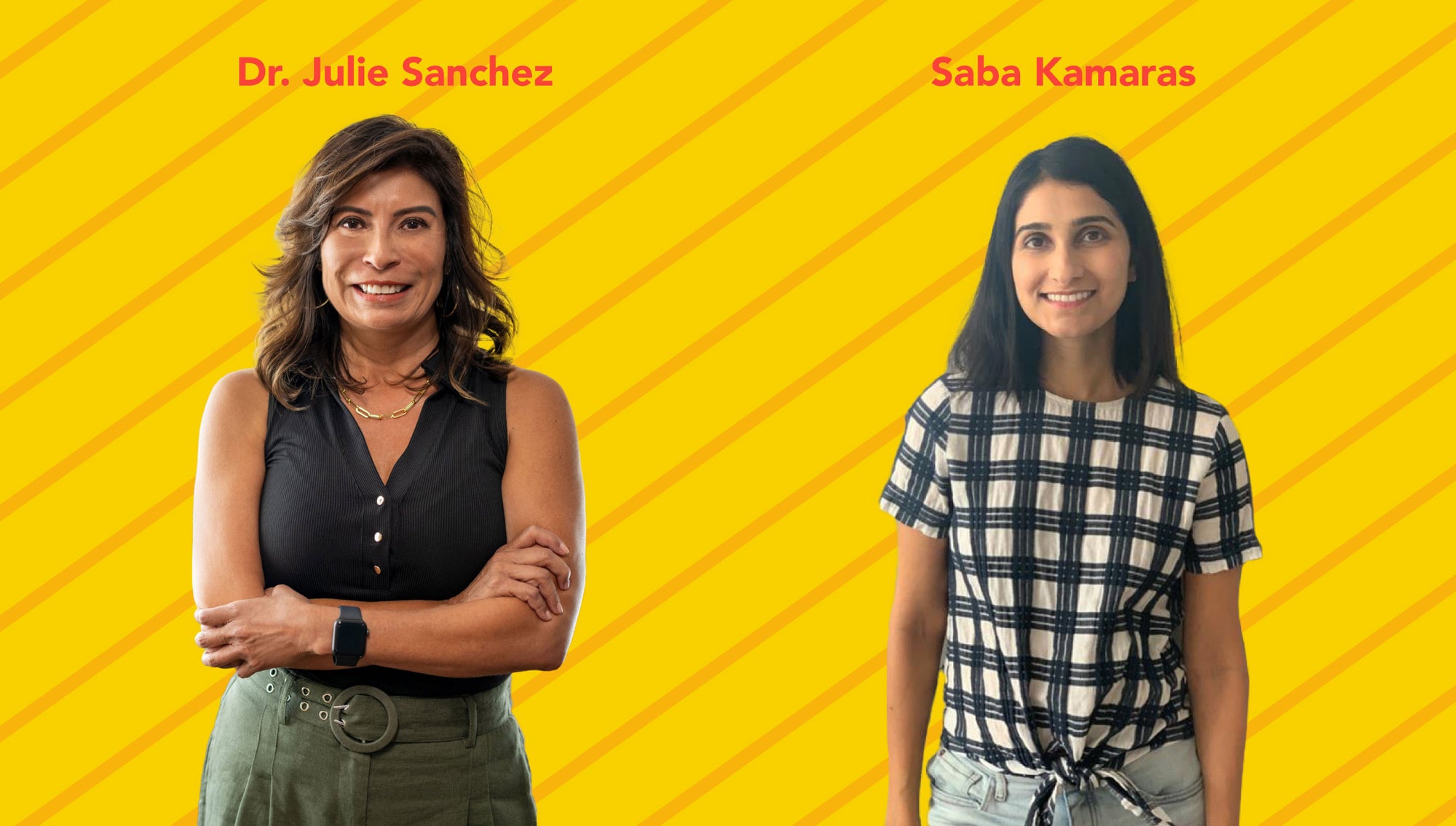
At Spoonie Threads, we design adaptive clothing that empowers people with disabilities and chronic illnesses. Our mission is simple: to make functional, stylish apparel that improves everyday life.
Who We Are ✅
✔ A small, passionate team dedicated to adaptive fashion
✔ Focused on quality, comfort, and adaptive design that is universal
✔ Committed to keeping prices accessible while ensuring durability
✔ Advocates for inclusion, not just in fashion, but in life
Who We Aren't ❌
✖ Fast fashion—we make small batches, not mass production
✖ A company chasing trends—we’ve been doing this for nearly a decade
✖ Focused on quick profits—we’re self-funded and mission-driven
✖ Willing to sacrifice quality—our products are made to last
We know finding adaptive clothing can be tough, and we're here to change that. Because everyone deserves clothing that works for them.
Limitations? So not our style.

Pediatric Surgeon Dr. Julie Sanchez first saw the need for adaptive clothing in 2015 after meeting a mother struggling to keep her autistic son’s G-tube secure. She realized medical devices didn’t just impact health—they changed daily life. Parents stayed up all night guarding feeding tubes, and kids avoided school or sports out of fear.
Fashion designer Saba Kamaras had seen the same struggles firsthand with her niece, who had a form of terminal muscular dystrophy and a G-tube. She knew thoughtful design changes could make a huge difference.
Driven by a shared mission, Dr. Sanchez and Saba teamed up to create Spoonie Threads—adaptive apparel designed for comfort, confidence, and real-life needs. Every piece is developed with input from the disability and chronic illness community, ensuring both function and style. Meet the rest of the small but mighty team here.

Pediatric Surgeon Dr. Julie Sanchez first saw a need for adaptive apparel in 2015. She met a concerned parent who opened her eyes to how placing a medical device in a child would impact daily life for families. Dr. Sanchez felt a responsibility to provide solutions to her patients to make their lives better outside the operating room. But the available solutions were limited or worse—beige and boring! Teaming up with fashion designer Saba Kamaras, they founded Spoonie Threads. Together, they set out to create adaptive clothing that merges style with functionality.
Dr. Sanchez first saw a need for adaptive apparel in 2015.
Dr. Sanchez: I remember the day a mom shared with me her challenges in caring for her 4-year-old autistic son. He was recovering from having a gastrostomy tube (g-button) placed. I went to her and reassured her that he was doing just fine. To my surprise, she started crying. Her son didn't have the ability to understand the importance of keeping his clothes on, and now, she needed to find a way for him not to pull out this new G-button.
I was ashamed that I had never stopped to think how placing a medical device would impact my patients or their families’ daily activities. I started asking my patients, and I learned that parents were taking turns staying up all night guarding their baby’s new g-button, scared their baby would get tangled in the tubing or the g-button would get pulled out. Children had refused to go back to school or participate in sports, scared their g-button would come out or afraid of being laughed at by other kids. Spoonie Threads was born out of this experience and community need. As a company, our goal is to create empowerment and freedom through fashion.
In 2018 Saba joined the team to launch partnerships with fashion companies who saw the need for inclusive design, such as Zappos Adaptive and American Eagle's Aerie brand.
Saba: I had worked for 8 years as a fashion designer in New York City and I was searching for a way to design with more purpose. My niece Eva was born with a form of terminal muscular dystrophy and had a g-tube put in when she was just a few days old. I saw how often her parents had to undress her to access her tube and saw that a simple design modification would make the process a lot easier. I started researching adaptive clothing and realized the massive need for additional options, and the tremendous opportunity that this space held. While getting my MBA at UT Austin, I got connected with Dr. Sanchez who was already working on this idea. We joined forces and ever since, we've been working to create beautiful and functional adaptive clothing and accessory items. We design all our items by listening to the people in the disability and chronic illness community, incorporating their feedback, and getting their approval before launching anything new.
What Inspired Spoonie Threads?
Why "Spoonie Threads?" Ever wondered why we're called Spoonie Threads? Dr. Julie and Saba share the story behind our name—watch now!
What's a Spoonie?
The Spoon Theory is an analogy to describe what daily life is like when living with chronic illnesses or disabilities, originally created by Christine Miserandino.
Imagine that a handful of spoons represents the amount of energy one has in a single day. Every single task – like showering, getting dressed, and eating breakfast – costs a spoon. A chronically ill individual might run out of spoons before lunchtime, while a healthy individual may have spoons to spare at the end of the day.

People with a chronic illness consciously and constantly take the number of spoons into consideration when making choices in their daily activities. This simple analogy helps explain the compromises that chronically ill individuals must make in order to persevere each and every day. Life is challenging enough living with a chronic illness. At Spoonie Threads, we design adaptive apparel to make life a little easier and brighter for Spoonies everywhere.
Click here to read Christine Miserandino’s original piece on the Spoon Theory.
Proudly partnered with:

